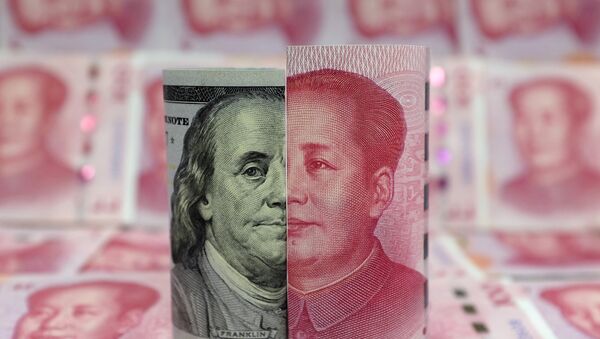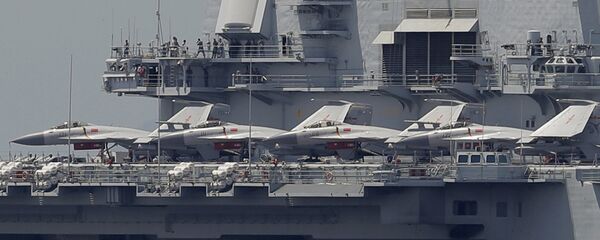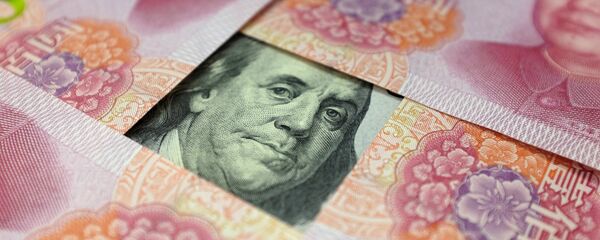Kristian Rouz — Chinese Premier Li Keqiang says Beijing will continue its reforms aimed at opening China's domestic market to foreign companies and investment. Li also reaffirmed Beijing's commitment to free and open trade, saying China opposes protectionism in any form — yet again taking a clear jab at the Trump administration in the US.
Li's remarks come ahead of his visit to Singapore, where leaders of Asia-Pacific countries commence their meetings on Monday, with a focus on the tension in international trade, and regional economic cooperation.
"China has opened its door to the world, we will never close it but open it even wider," Li stressed.
READ MORE: China Concludes $57.8 Billion in Deals at Latest Trade Show
For his part, Singapore's Prime Minister Lee Hsien Loong, who is hosting the Asia-Pacific forum, echoed Li's sentiments, expressing his support for deeper regional cooperation and a multilateral approach to international trade relations.
Singapore's Lee also said free and open trade are "under attack" in the face of the recent exchange of tariffs between the US and China, and urged a greater openness in the global trading system.
This as the People's Bank of China (PBOC) recently said the mainland's economy had slowed to 6.5 percent annual growth in the third quarter, mainly due to a slowdown in domestic lending in the face of an expected contraction in China's export revenues.
READ MORE: Chinese Businesses Rush to Get Exports Out Before Tariff Increase — Analyst
In this light, China is seeking new sources of hard currencies, and new markets for its exporters. Chinese officials are hoping to boost the exports of national manufacturers to other Asia-Pacific countries in exchange for certain trade preferences and concessions regarding China's consumer market.
And Singapore's Lee appears to be confident such plans could be viable.
"ASEAN has great potential, but fully realising it depends on whether we choose to become more integrated, and work resolutely towards this goal in a world where multilateralism is fraying under political pressures", Singapore's prime minister said.
Singapore officials have previously expressed concern that the deepening trade spat between the US and China could negatively affect the city-state's economy. Singapore is heavily reliant on its financial services industry and has served as a mediator between many American and Chinese firms doing business in both directions.
For several months, China and Singapore have pushed for a new multilateral trade and investment deal, which would include the majority of Asia-Pacific countries. The deal, dubbed the Regional Comprehensive Economic Partnership (RCEP), somewhat echoes the letter and spirit of the late Trans-Pacific Partnership (TPP).
READ MORE: Russian Minister Suggests Ditching Dollar Trade With China Won't Affect Ruble
Chinese officials said RCEP would greatly streamline and facilitate trade between countries accounting for more than 30 percent of the world's GDP — including such US allies as Japan and South Korea, along with India and China itself.
The proposed deal has also raised a concern of so-called "trans-shipping" — with China re-selling its goods into the US through countries that have free-trade deals with the US, for example, South Korea. This would allow Chinese manufacturers to bypass Trump's stringent tariffs.
China's Li said he is aiming to advance talks to RCEP during this week's ASEAN meetings.






